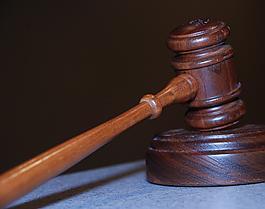
In the laudable effort to address complaints of sexual harassment and discrimination, the American Bar Association (ABA) recently passed a far-reaching and vaguely worded resolution establishing a new ethical standard for lawyers. The new policy defines sexual harassment to include “derogatory or demeaning verbal or physical conduct [and] unwelcome sexual advances, requests for sexual favors, and other unwelcome verbal or physical conduct of a sexual nature.” The policy would apply to a great deal more than trials and meetings with other attorneys, and would also include interactions with coworkers, employees, and “business or social activities in connection with the practice of law.”
The effort to combat discrimination is critical, but it’s equally important to recognize the critical role that protection for controversial and unpopular speech has played in advancing civil rights, women’s rights, and gay rights. Anyone who cares about the ability to challenge the status quo should be wary of diminishing the protection and respect accorded to freedom of speech. The Supreme Court has defined verbal harassment very narrowly to avoid a conflict with First Amendment principles, but the ABA did not take the same approach.
Under the new rule, a sexist joke or offhand comment, that would not qualify as harassment under anti-discrimination law, could give rise to an ethics complaint against a lawyer. The same is true of an article expressing sexist attitudes about rape law. Of course, professional organizations have more leeway in defining ethical conduct than courts and legislators have in regulating unlawful behavior, but the ABA resolution is troubling because it follows a trend to prohibit, in various ways, specific views and attitudes. This kind of viewpoint discrimination is prohibited by the First Amendment. The ABA isn’t legally bound by the constitution, but you’d think an organization of lawyers would refrain from adopting a rule so plainly inconsistent with basic constitutional principles.
The ABA’s vote is consistent with a disturbing trend. We’ve previously expressed concern about the vague and overbroad definition of harassment that the Office of Civil Rights of the Department of Education uses in enforcing federal antidiscrimination law. The AAUP and many law professors have expressed similar concerns. If there is any doubt about the problems created by OCR’s approach, just see what happened to Laura Kipnis, a professor at Northwestern, after she published an article commenting on sexual attitudes.
Other free speech advocates have also expressed concern about the ABA's resolution.

